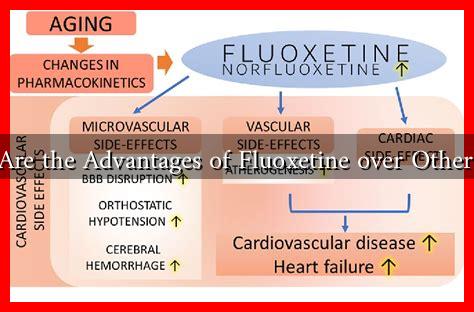-
Table of Contents
What Are the Advantages of Fluoxetine over Other SSRIs?
Fluoxetine, commonly known by its brand name Prozac, is one of the most widely prescribed selective serotonin reuptake inhibitors (SSRIs) for the treatment of depression, anxiety disorders, and other mental health conditions. While there are several SSRIs available, fluoxetine offers unique advantages that make it a preferred choice for many healthcare providers and patients. This article explores the benefits of fluoxetine compared to other SSRIs, supported by research and clinical insights.
Understanding SSRIs and Their Mechanism
SSRIs are a class of medications that work by increasing the levels of serotonin in the brain, a neurotransmitter that plays a crucial role in mood regulation. By inhibiting the reuptake of serotonin, SSRIs help alleviate symptoms of depression and anxiety. While all SSRIs share this common mechanism, they differ in their pharmacokinetics, side effects, and patient responses.
Key Advantages of Fluoxetine
Fluoxetine has several advantages over other SSRIs, making it a valuable option for many patients:
- Long Half-Life: Fluoxetine has a longer half-life compared to other SSRIs, which means it stays in the body longer. This can lead to more stable blood levels and a lower risk of withdrawal symptoms if a dose is missed.
- Effective for a Range of Disorders: Fluoxetine is not only effective for major depressive disorder but also for obsessive-compulsive disorder (OCD), bulimia nervosa, and panic disorder. This versatility makes it a go-to option for various mental health issues.
- Lower Risk of Weight Gain: Unlike some other SSRIs, fluoxetine is less likely to cause weight gain, which is a common concern among patients taking antidepressants. Studies have shown that fluoxetine may even lead to weight loss in some individuals.
- Favorable Side Effect Profile: Fluoxetine is generally well-tolerated, with fewer side effects compared to other SSRIs. Common side effects like sexual dysfunction and gastrointestinal issues are reported less frequently.
- Potential for Increased Energy: Some patients report an increase in energy levels when taking fluoxetine, which can be particularly beneficial for those experiencing fatigue as a symptom of depression.
Clinical Evidence Supporting Fluoxetine’s Advantages
Numerous studies have highlighted the benefits of fluoxetine. For instance, a meta-analysis published in the Journal of Clinical Psychiatry found that fluoxetine was effective in treating both depression and anxiety disorders, with a favorable side effect profile compared to other SSRIs. Additionally, a study in the American Journal of Psychiatry indicated that fluoxetine’s long half-life contributed to better adherence among patients, as they experienced fewer withdrawal symptoms when discontinuing treatment.
Case Studies: Real-World Applications
In clinical practice, fluoxetine has been successfully used in various patient populations. For example:
- A 35-year-old female with a history of depression and bulimia nervosa found significant improvement in her symptoms after starting fluoxetine, with minimal side effects.
- A 50-year-old male with anxiety and depression reported increased energy and motivation after switching from sertraline to fluoxetine, allowing him to engage more in social activities.
Conclusion: The Unique Position of Fluoxetine
Fluoxetine stands out among SSRIs due to its long half-life, versatility in treating multiple disorders, lower risk of weight gain, and favorable side effect profile. These advantages make it a compelling choice for both patients and healthcare providers. As with any medication, individual responses may vary, and it is essential for patients to work closely with their healthcare providers to determine the best treatment plan for their specific needs.
In summary, fluoxetine’s unique characteristics and clinical evidence supporting its efficacy and tolerability position it as a valuable option in the treatment of depression and anxiety disorders. As research continues to evolve, fluoxetine remains a cornerstone in the pharmacological management of mental health conditions.


